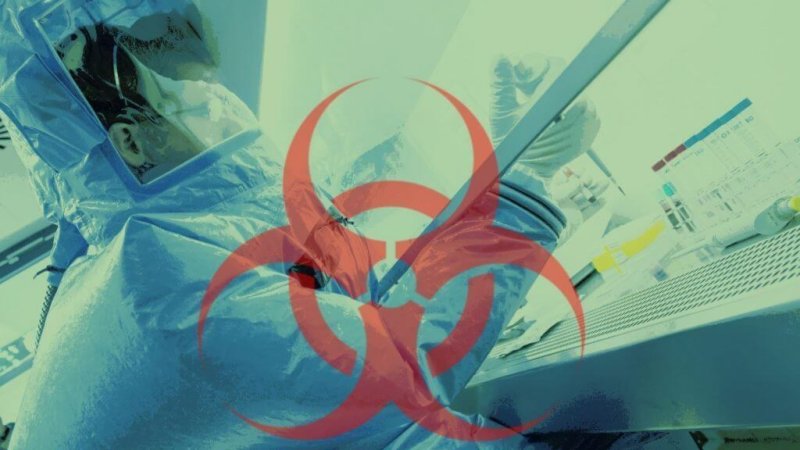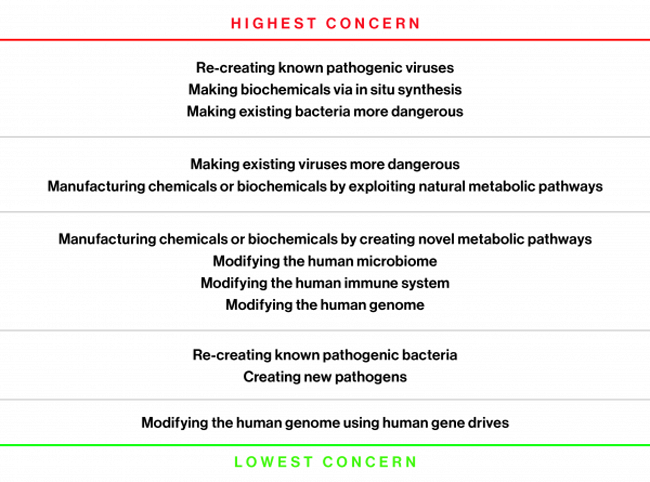A study ordered by the US Department of Defense has concluded that new genetic-engineering tools are expanding the range of malicious uses of biology and decreasing the amount of time needed to carry them out.
The new tools aren’t in themselves a danger and are widely employed to create disease-resistant plants and new types of medicine. However, rapid progress by companies and university labs raises the specter of “synthetic-biology-enabled weapons,” according to the 221-page report.
…
The current report attempted to weigh potential threats by considering factors such as the technical barriers to implementation, the scope of casualties, and the chance of detecting an attack. It found that while “some malicious applications of synthetic biology may not seem plausible right now, they could become achievable with future advances.”
Among the risks the authors termed of “high concern” is the possibility that terrorists or a nation-state could re-create a virus such as smallpox. That is a present danger because a technology for synthesizing a virus from its DNA instructions has previously been demonstrated.
…
“The US government should pay close attention to this rapidly progressing field, just as it did to advances in chemistry and physics during the Cold War era,” says Michael Imperiale, a microbiologist at the University of Michigan.
Read full, original post: US military wants to know what synthetic-biology weapons could look like
































